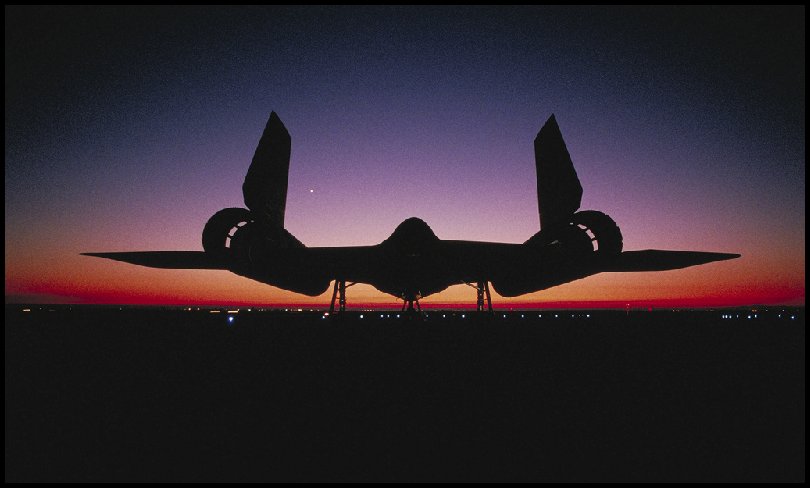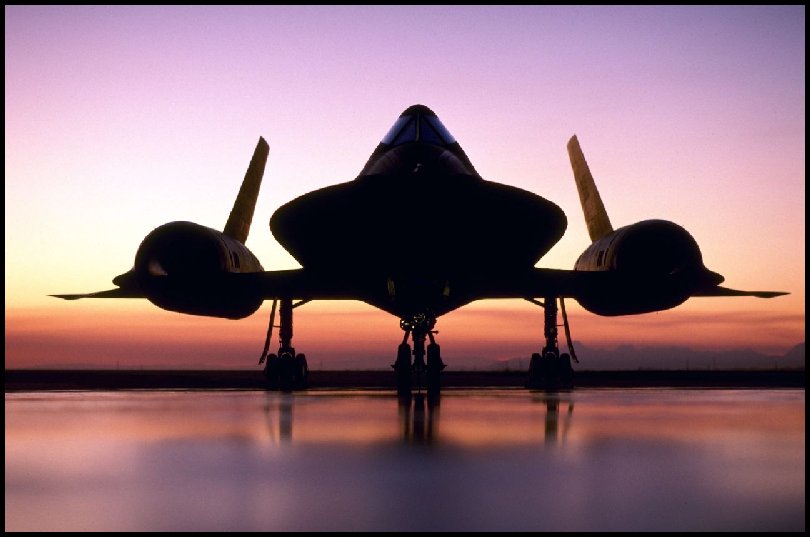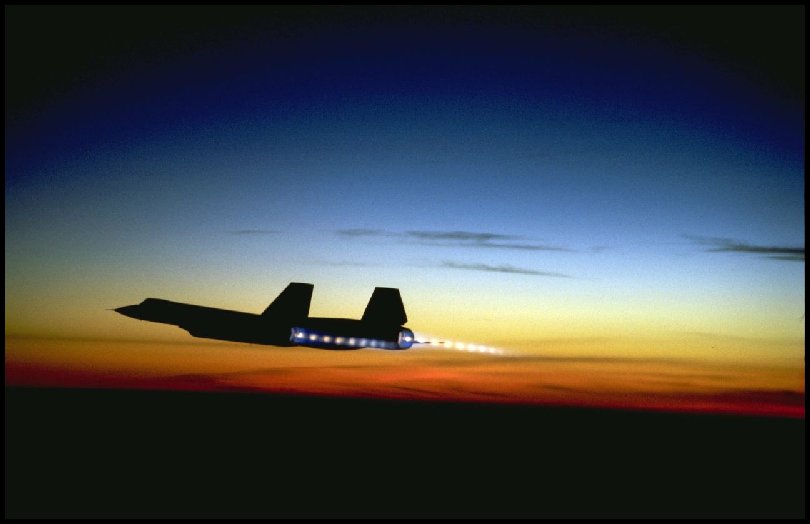The Fastest Plane on Earth
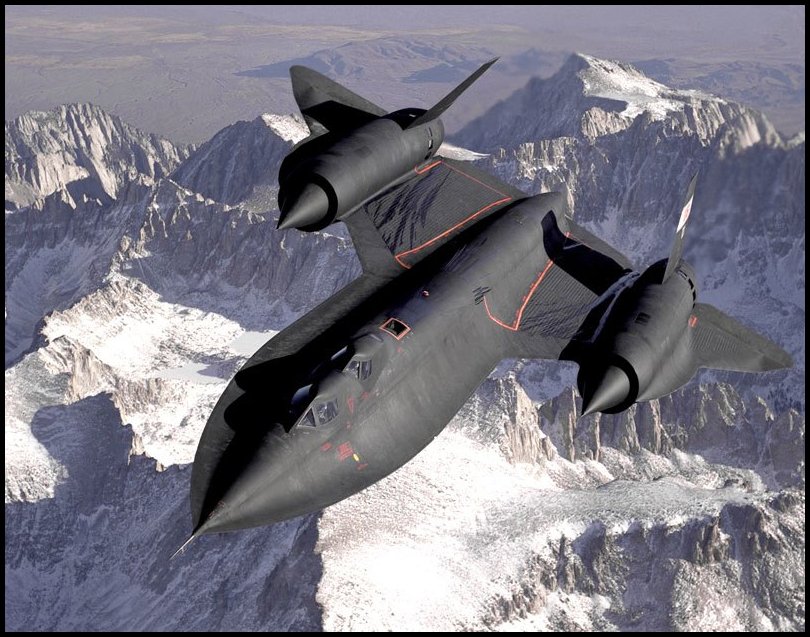
Since 1976, the Lockheed SR-71 Blackbird has held the world record for the fastest ‘air-breathing manned aircraft’ with a recorded speed of 1,905.81 knots (2,193.2 mph). That works out to a staggering 36.55 miles per minute.
The Blackbird was so fast that its strategy against surface-to-air missiles was to simply accelerate and outfly them. Below you will find an extensive gallery of this iconic aircraft along with information on the history, design and records the plane holds to this day.
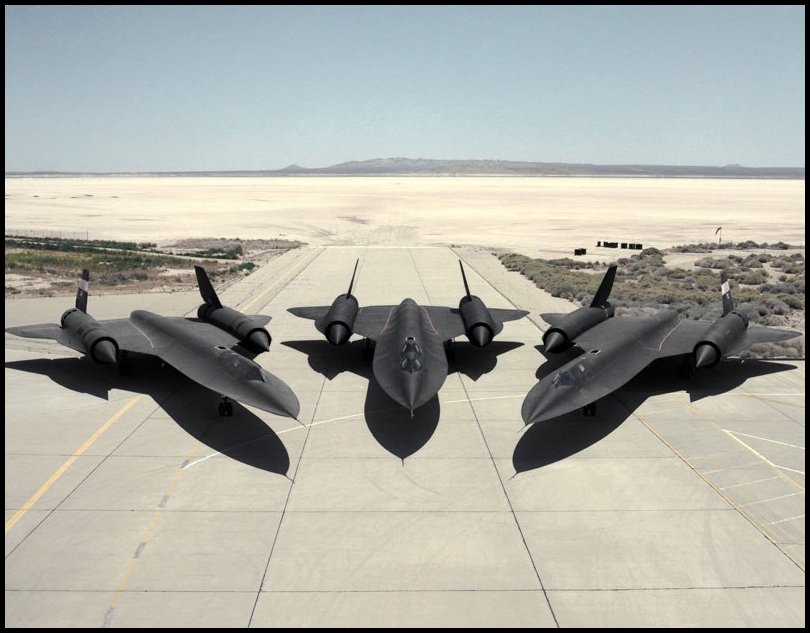
The SR-71 served with the U.S. Air Force from 1964 to 1998. Of the 32 aircraft built, 12 were lost in accidents, though none to enemy action. Since 1976, it has held the world record for the fastest air-breathing manned aircraft.
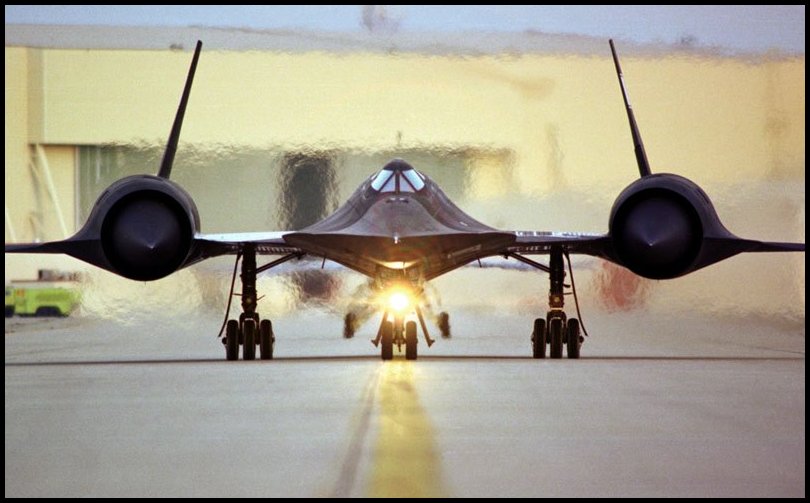
The Blackbird was developed as a black project from the Lockheed A-12 reconnaissance aircraft in the 1960s by the Lockheed Skunk Works. Clarence “Kelly” Johnson was the lead designer and was responsible for many of the design’s innovative concepts.
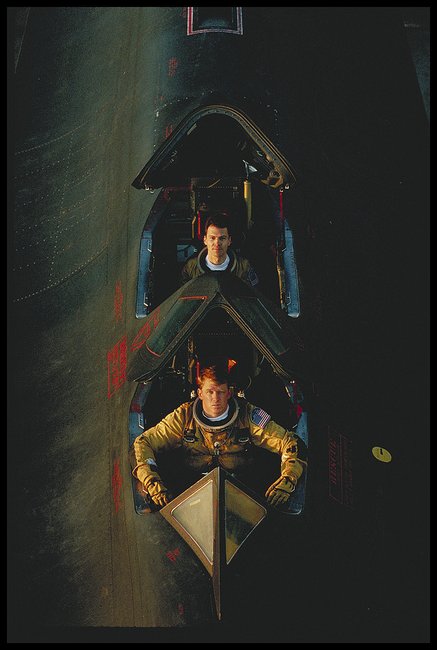
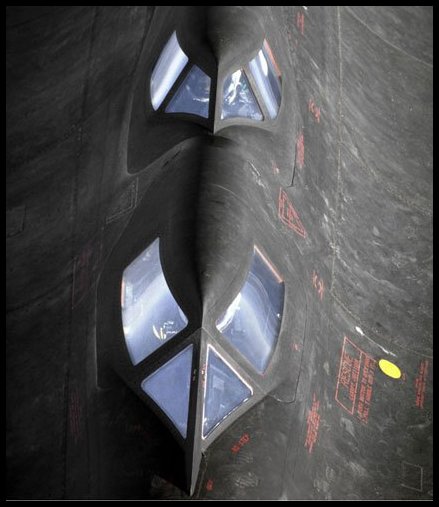
The SR-71 was designed for Mach 3+ flights (3349.31 ft per second) with a crew of two in tandem cockpits, with the pilot in the forward cockpit and the Reconnaissance Systems Officer (RSO) monitoring the surveillance systems and equipment from the behind cockpit.
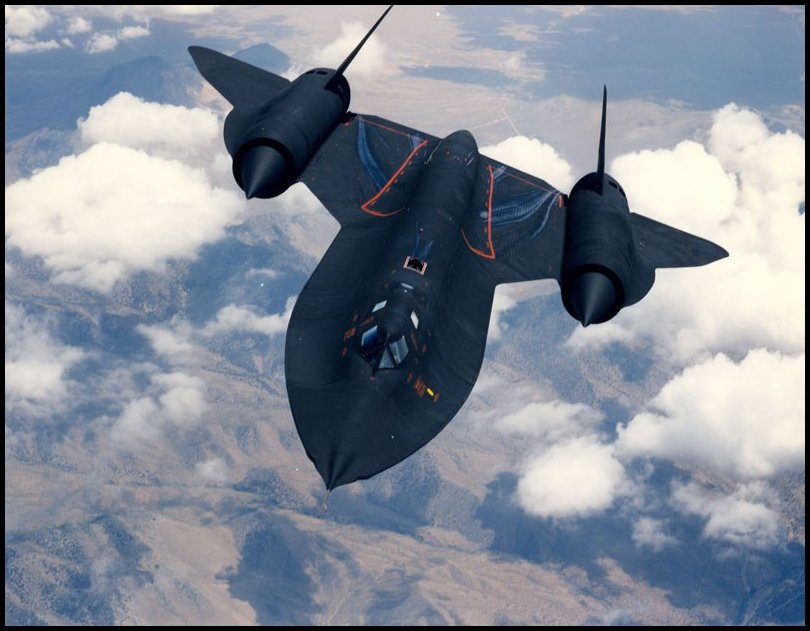
Finished aircraft were painted a dark blue, almost black, to increase the emission of internal heat and to act as camouflage against the night sky. The dark colour led to the aircraft’s call sign “Blackbird”.
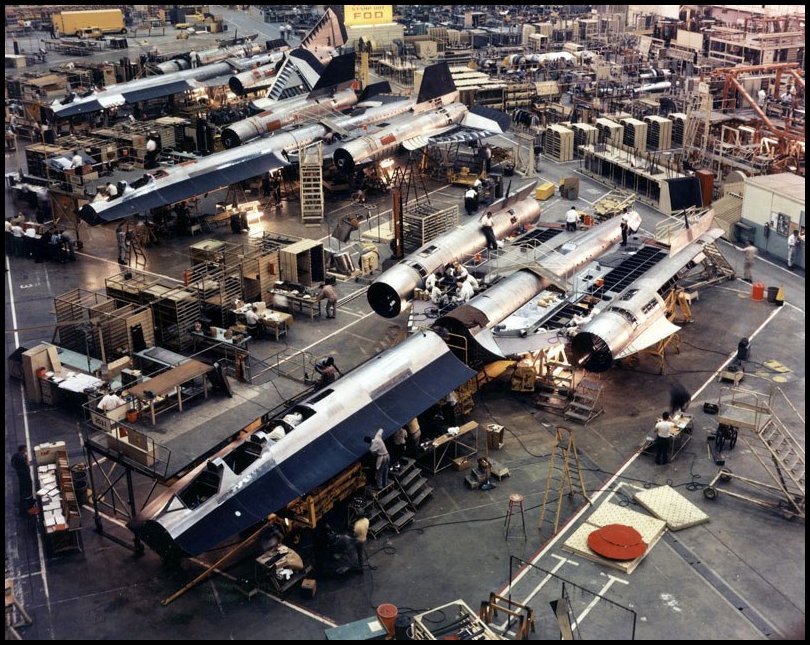
On most aircraft, use of titanium was limited by the costs involved in procurement and manufacture. It was generally used only in components exposed to the highest temperatures, such as exhaust fairings and the leading edges of wings. On the SR-71, titanium was used for 85% of the structure, with the rest made of composite materials.
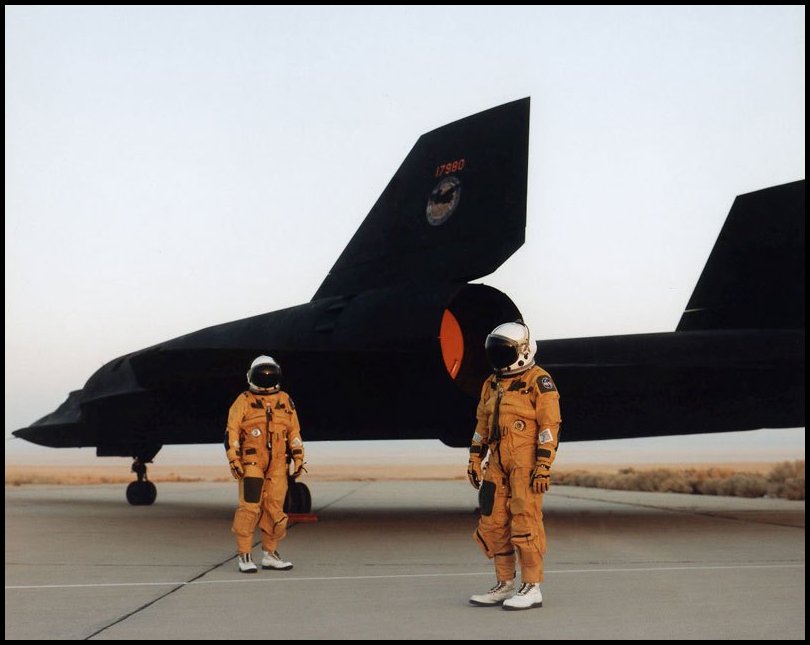
Flying at 80,000 ft. meant that crews could not use standard masks, which could not provide enough oxygen above 43,000 ft. Specialised protective pressurized suits were produced; similar suits were also used on the Space Shuttle.
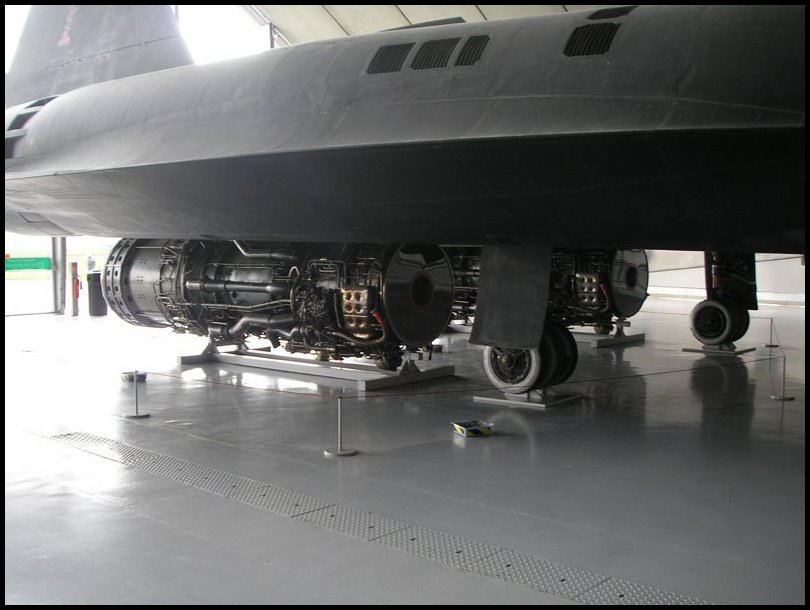
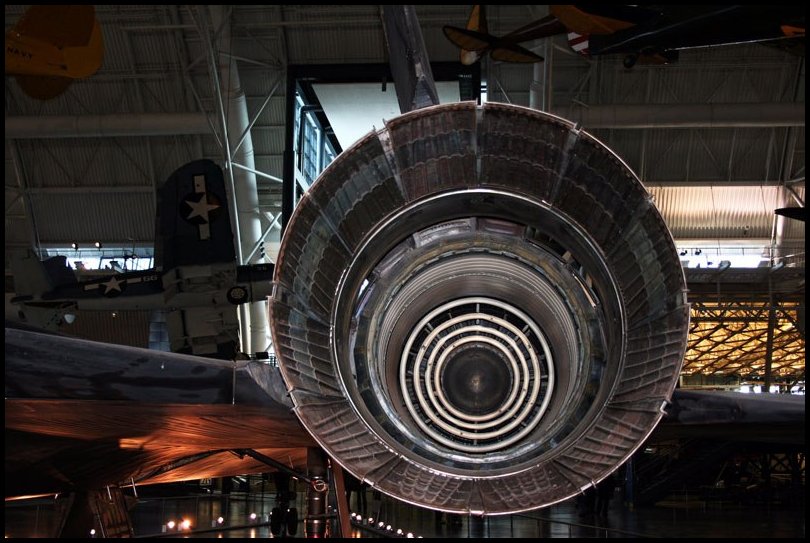
The Pratt & Whitney J58-P4 engine that powered the SR-71 was a considerable innovation of their era; each one could produce 32,500 lbf of static thrust. The J58 was most efficient around Mach 3.2, the Blackbird’s typical cruising speed. A unique hybrid, the engine can be thought of as a turbojet inside a ramjet.
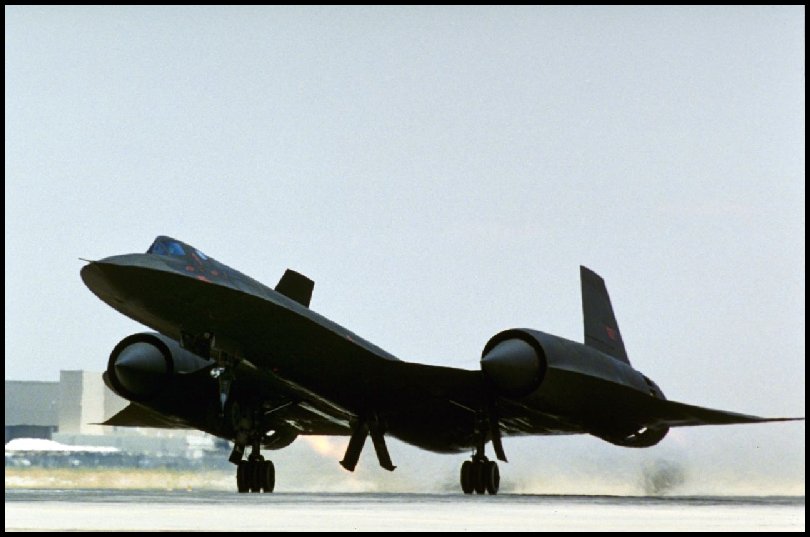
Originally, the Blackbird’s engines started up with the assistance of an external engine referred to as a “start cart”. The cart included two Buick Wildcat V8 engines positioned underneath the aircraft. The two engines powered a single, vertical driveshaft connecting to a single J58 engine. Once one engine was started, the cart was wheeled to the other side of the aircraft to start the other engine. The operation was deafening.
Eventually, a quieter, pneumatic start system was developed for use at Blackbird main operating bases, but the start carts remained to support recovery team Blackbird starts at diversion landing sites not equipped to start J-58 engines.
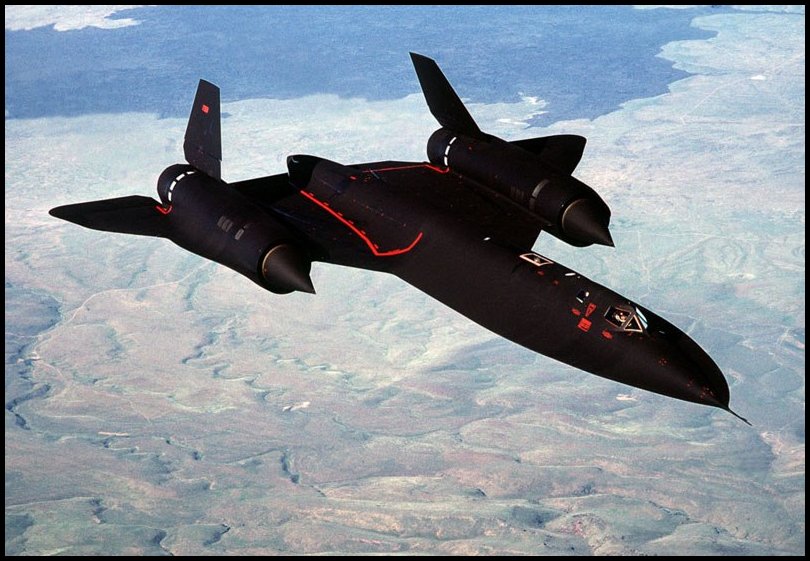
Before each takeoff, a time-consuming primary alignment brought the ANS’ inertial components to a high degree of accuracy. Once in flight, the ANS, which sat behind the Reconnaissance Systems Officer (RSO)’s position, tracked stars through a circular window set in the upper fuselage. Its blue light source star tracker, which could see stars during both day and night, would continuously track a variety of stars as the aircraft’s changing position brought them into view.
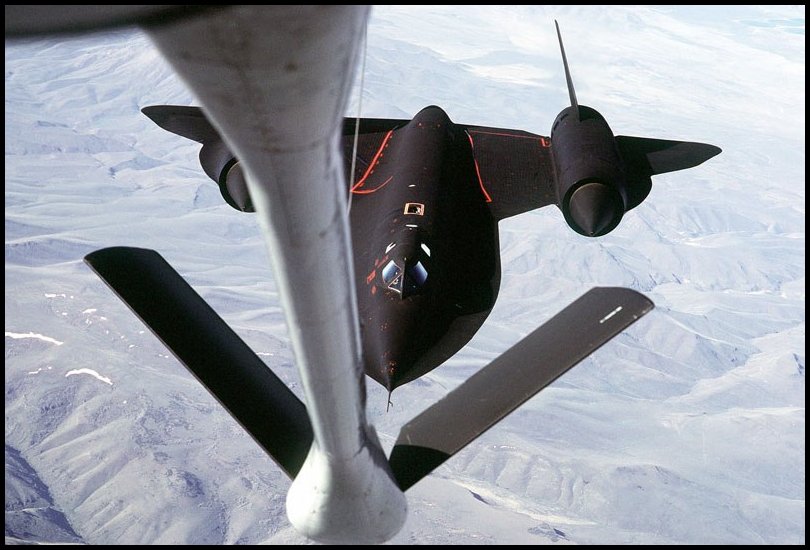
The first flight of an SR-71 took place on 22 December 1964, at Air Force Plant 42 in Palmdale, California. The first SR-71 to enter service was delivered to the 4200th (later, 9th) Strategic Reconnaissance Wing at Beale Air Force Base, California, in January 1966.
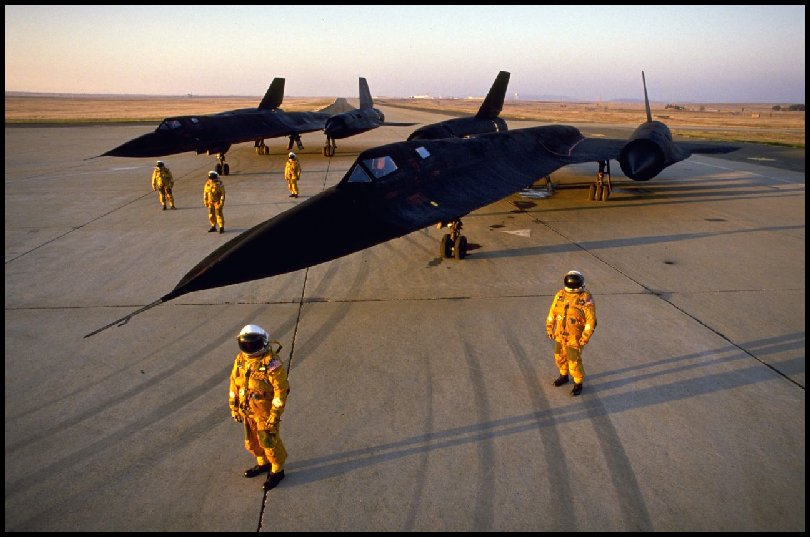
Operational highlights for the entire Blackbird family (YF-12, A-12, and SR-71) as of about 1990 included:
– 3,551 Mission Sorties Flown
– 17,300 Total Sorties Flown
– 11,008 Mission Flight Hours
– 53,490 Total Flight Hours
– 2,752 hours Mach 3 Time (Missions)
– 11,675 hours Mach 3 Time (Total)
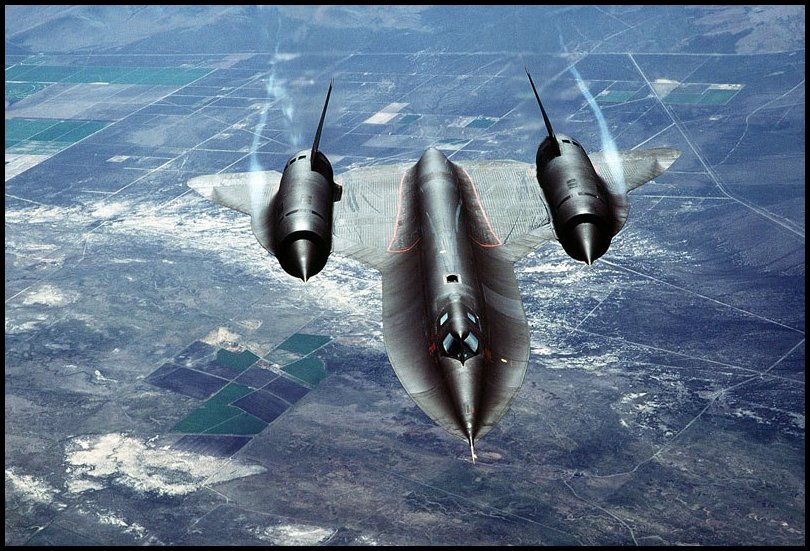
The SR-71 was the world’s fastest and highest-flying operational manned aircraft throughout its career. On 28 July 1976, it broke the world record for its class: an “absolute altitude record” of 85,069 feet. Several aircraft exceeded this altitude in zoom climbs but not in sustained flight. That same day an SR-71 set an absolute speed record of 1,905.81 knots (2,193.2 mph).
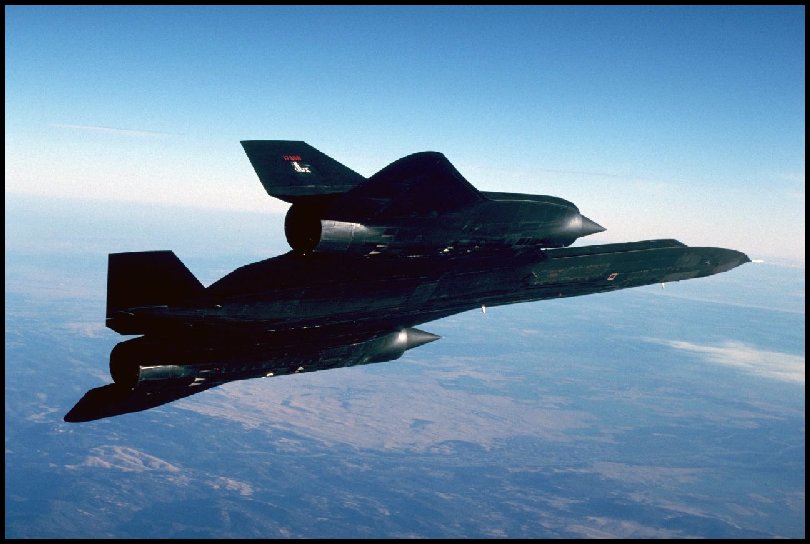
The SR-71 also holds the “Speed Over a Recognized Course” record for flying from New York to London distance 3,508 miles , 1,435.587 miles per hour, and an elapsed time of 1 hour 54 minutes and 56.4 seconds, set on 1 September 1974 while flown by U.S. Air Force Pilot Maj. James V. Sullivan and Maj. Noel F. Widdifield, reconnaissance systems officer (RSO).
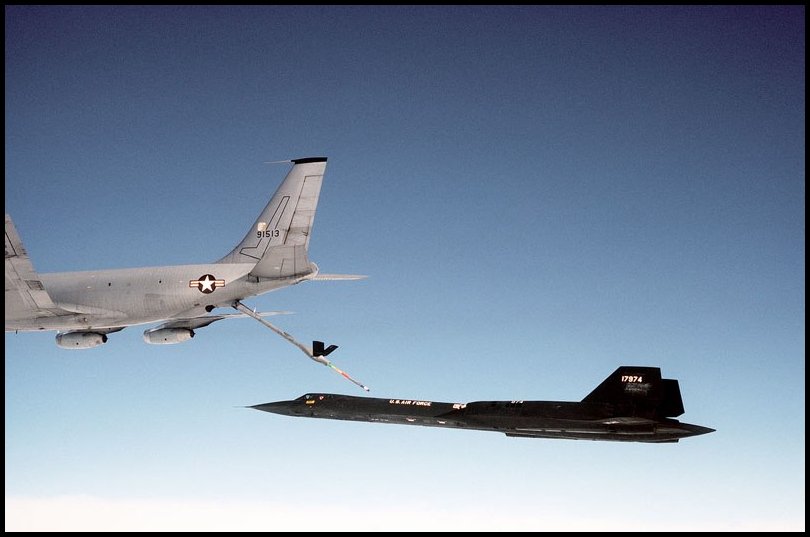
On 26 April 1971, 61-7968 flown by Majors Thomas B. Estes and Dewain C. Vick flew over 15,000 miles in 10 hrs. 30 min. This flight was awarded the 1971 Mackay Trophy for the “most meritorious flight of the year” and the 1972 Harmon Trophy for “most outstanding international achievement in the art/science of aeronautics”.
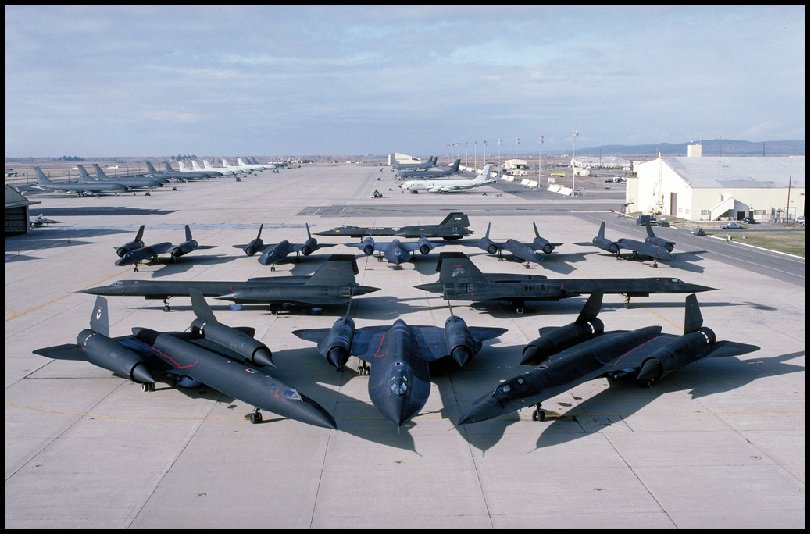
On 6 March 1990, Lt. Col. Raymond “Ed” E. Yielding and Lt. Col. Joseph “Jt” T. Vida piloted SR-71 S/N 61-7972 on its final Senior Crown flight and set four new speed records in the process:
1. Los Angeles, CA to Washington, D.C., distance 2,299.7 miles, average speed 2,144.8 miles per hour, and an elapsed time of 64 minutes 20 seconds.
2. West Coast to East Coast, distance 2,404 miles, average speed 2,124.5 miles per hour, and an elapsed time of 67 minutes 54 seconds.
3. Kansas City, Missouri to Washington D.C., distance 942 miles, average speed 2,176 miles per hour, and an elapsed time of 25 minutes 59 seconds.
4. St. Louis, Missouri to Cincinnati, Ohio, distance 311.4 miles (501.1 km), average speed 2,189.9 miles per hour, and an elapsed time of 8 minutes 32 seconds.
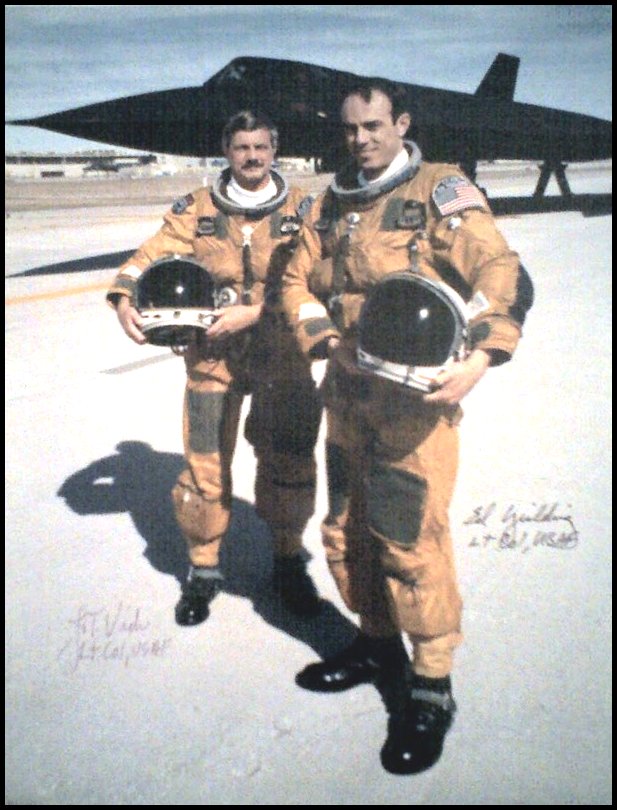
Pictured above is the “Last Flight” of a SR-71. In the background is the SR-71 S/N 61-7972. In the foreground is Pilot Lt. Col. Raymond “Ed” E. Yielding and REO Col. Joseph “Jt” T. Vida on March 6, 1990.
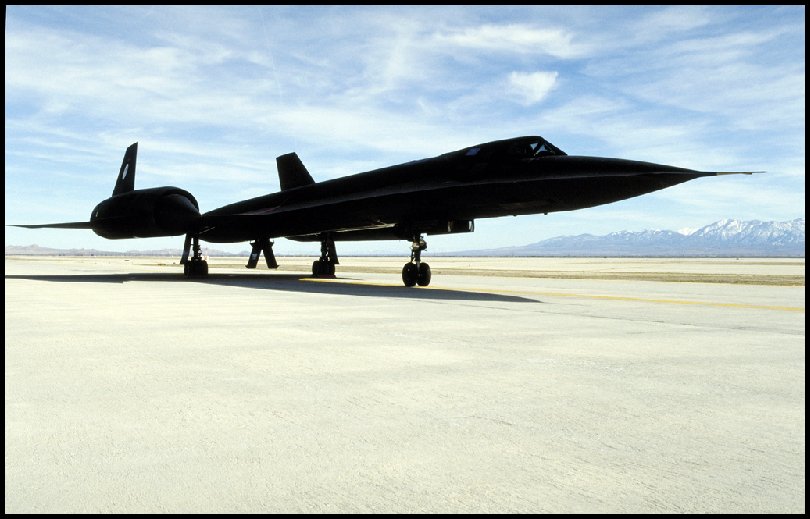
General Characteristics
Crew: 2 (Pilot and Reconnaissance Systems Officer)
Payload: 3,500 lb of sensors
Length: 107 ft 5 in
Wingspan: 55 ft 7 in
Height: 18 ft 6 in
Wing area: 1,800 ft2
Empty weight: 67,500 lb
Loaded weight: 152,000 lb
Max. takeoff weight: 172,000 lb
Performance
Maximum speed: Mach 3.3 (2,200+ mph, 1,900+ knots) at 80,000 ft
Range: 2,900 nmi
Ferry range: 3,200 nmi
Service ceiling: 85,000 ft
Rate of climb: 11,810 ft/min
Wing loading: 84 lb/ft²
Thrust/weight: 0.44
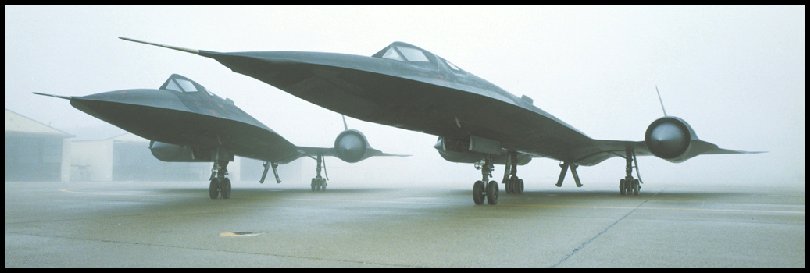
Only 93 Air Force pilots have ever steered the ‘sled’, which was the Blackbird’s nickname given by the pilots.
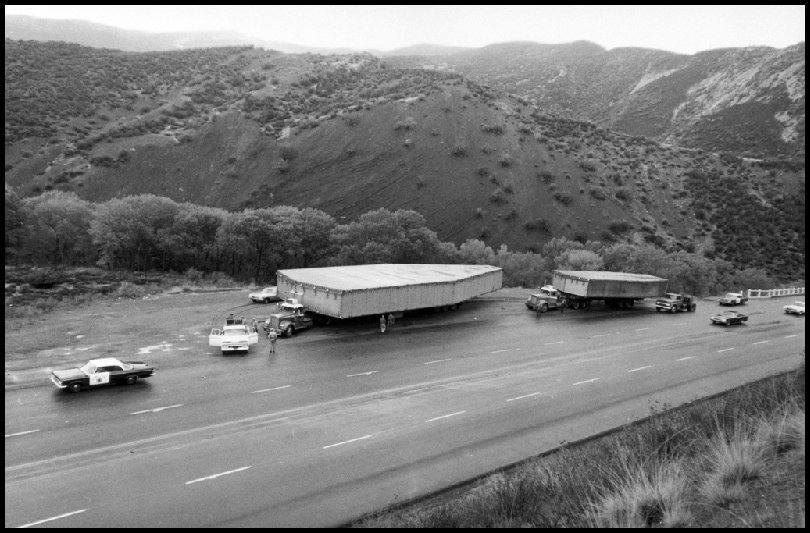
Pictured above is the SR-71 in transport between Burbank and Palmdale.
